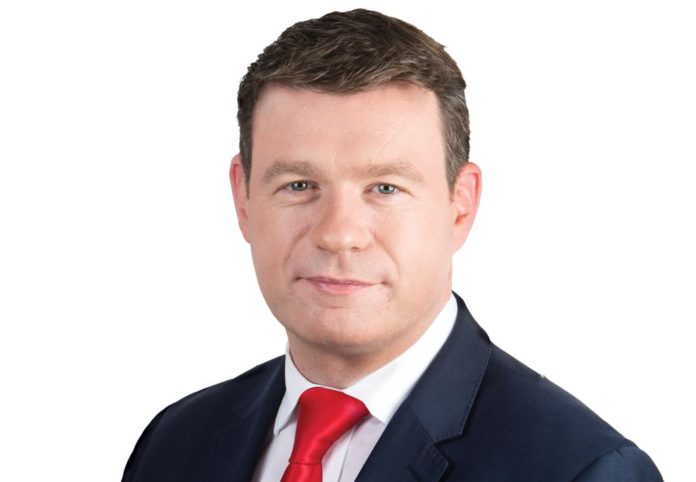SPECIALISED public health crack teams with foreign language capabilities are needed to chase down and eliminate variant Covid strains circulating in Ireland.
That’s the view of scientists, migrant worker representatives and concerned opposition politicians.
‘We need to know that when there are variant outbreaks that we have public health specialists who are qualified in all the various different areas, that there are multi-agency teams ready to go, that areas can be shut down if necessary very quickly, that all language difficulties are dealt with and that all necessary policies can be activated immediately,’ Labour Party leader Alan Kelly told the Irish Mail on Sunday last night.
Deputy Kelly was speaking as the National Virus Reference Laboratory identified another new variant of concern associated with travel from sub- Saharan Africa.
The number of South African variant cases confirmed in Ireland also rose to 15 this week while cases of the Brazilian P1 variant remained static at three.
‘We need absolute confidence, when it comes to variants, that we have the public health infrastructure – and that means human beings – to deal with the variant outbreaks,’ said Mr Kelly.
‘It’s absolutely necessary that they are in place. Do I have full confidence that they are in place to the extent that we require?
No, I don’t.’ These concerns were echoed by Trinity College neuroscientist Dr Tomás Ryan, a key figurehead in the Independent Scientific Advocacy Group (ISAG).
‘One of the things that ISAG is calling for is the resourcing of public health physicians,’ he told the MoS.
‘Scotland has three times as many public health doctors as we do. We have been under-investing in our public health doctors for years.
‘You need to give them a lot of local power. You need to give them better resources, more assistance and you need to have a SWAT team for the variants.
You need to have a hyperresourced team that can hunt out the variants.’
Dr Ryan added that language capabilities were a vital element of any such team – as Australian authorities discovered when they tried to engage with migrant communities.
‘I’ve spoken to Tony Holohan’s equivalent in Melbourne and they had a problem dealing with the marginalised international communi- ties and that’s where the transmission chains were persisting and they had to change their approaches to deal with that,’ said Dr Ryan.
‘Those SWAT teams need to be able to win the cooperation of those communities.’ Speaking as the Government’s quarantine legislation progressed through the Dáil and Seanad this week, Dr Ryan said gaps in our systems mean we have likely failed to detect variants already in circulation. ‘When you have a surveillance system that is so leaky, it’s highly unlikely that the three P1 cases we identified were the first cases that came into the country.
‘In other words we have to assume that the P1 variant has come into the community and is continuing to come into the community and this is what is very worrying.’
Dr Ryan said it was inevitable, given current rules, that more variant cases would arrive in Ireland.
‘The problem is they’re not going to get all the people in the first place. You’re going to have those people who are either arriving without a negative PCR test or you have people who arrive with a negative PCR test but were in the first few days of incubation when they got the test – or were a false negative, which is 20-30% of cases.’
One area of continuing concern involves migrant workers from locations such as Brazil working in meat plants and other low-pay sectors.
Because they are not entitled to sick pay, these workers, who tend to live together in cramped circumstances, do not always declare themselves sick or follow public health guidelines.
Yet the Government is not planning to implement promised legislation to make sick pay mandatory until the end of this year.
‘We have been raising these issues for 10 months,’ said SIPTU divisional organiser Greg Ennis, who has responsibility for meat plants.
‘I would have grave reservations that people actually coming back from foreign countries after Christmas working for the meat industry have quarantined.
‘I know there were cases in wave one who took leave to go home to Poland and were told by their employer, ‘If you come back and self-isolate there’ll be no job for you here. Get back to work.’
The HSE said that our public health system has good access to interpreters in order to deal in the languages of migrant workers who may not speak English.
And in response to queries from the MoS this week, the HSE and Health Protection Surveillance Centre said it had established a Variant Of Concern (VOC) Operational Response Group, and a National Steering Group.
‘These groups provide oversight and guidance to the regional Departments of Public Health and the Contact Management Programme, with regards to the identification and management of individuals who are identified as possibly being infected with one of the aforementioned VOCs,’ said Dr Lorraine Doherty, Clinical Director of Health Protection, HSE HPSC.

